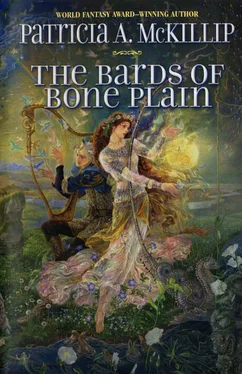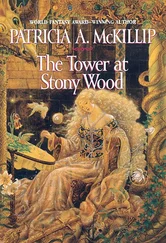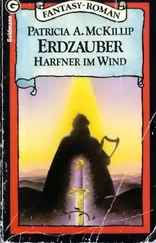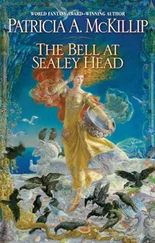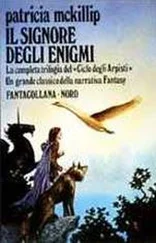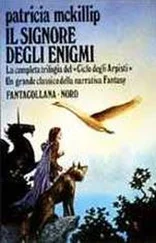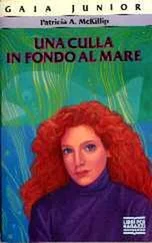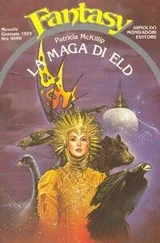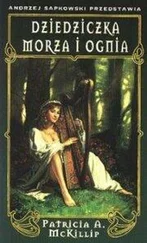“No,” he said dazedly, rolling off the sofa. He collected the books, feeling off-balance in that world, two vastly different centuries clamoring for precedence in his brain. “I’m going out, thanks.”
“Shall I take those books for you?”
“No,” he said again, quickly, having a vision of his drunken father finding them, riffling through his bookmarks and snorting with laughter at the latest moldy turn of Phelan’s paper. “I’ll hide them myself.”
He walked along the river, vaguely aware of the lights flickering on in the twilight, from streetlamps and buildings, streaking the water with their colorful reflections. The evening was warm; market skiffs still plied the waters among the gilded, lantern-lit barges that had rowed out for a meal or a party on the water. He wondered if his mother was on one of them. Jonah was probably sitting on top of a standing stone with a bottle in hand, trying to pick an argument with the moon. Phelan had little idea where he was going; he let his feet lead him. When, a mile or two later, they turned into the city’s oldest tavern on the waterfront, the Merry Rampion, he was not surprised.
The crowd was a noisy mix of students and masters, dockers and fishers on their way home, and well-dressed patrons out on the town. He glanced around for Jonah, was relieved not to find him there. Chase Rampion greeted him genially, brought him beer, and left him alone in the crush, gazing out of the grimy, whorled window at the gulls wheeling above the darkening water.
Something portentous had happened between the time Nairn had first appeared in the records and when his name was no longer mentioned. Exactly what lay between the lines. The first school steward, Dower Ren, must have written his entries with his teeth clenched, so terse were they: “This day accounts rendered to Wil Homely, stonemason, for repairs to what is now the tower roof, and for removing the fallen stones from the school grounds.” A day or two earlier, accounts had been rendered “to Salix, for tending to the minor wounds of the school steward, and to Brixton Mar, carpenter, for a new desk and bed frame for same. Ink and a new pot procured with thanks rendered to Salix, and to the school kitchen.”
The old school tower had apparently fallen in, or blown itself up, or cracked in two, right in the middle of the first bardic competition. Struck by age, by an errant wind, by an earthquake, by an oak tree falling on it? The steward did not say. Whatever happened was beyond the pale of accounts rendered and received.
“Phelan.”
He started. Someone had slipped into the empty chair at his tiny table. Zoe, he saw with relief; at least he would not have to make inane noises.
She had an odd expression on her face. A new one, he realized with surprise, after all those years of knowing her. The tavern keeper came to greet her, carrying a glass of her favorite wine.
“Thank you, Chase,” she said, kissing him; he lingered a moment, puzzling, like Phelan, over the distraction in her eyes and the deep frown between them.
Then someone called him away, and she took a deep breath.
“Phelan,” she said again, very softly, touching his wrist; her fingers were cold.
“What?” he asked abruptly. “Is it your father? Mine?”
“No—it’s Quennel.”
“Is he dead?”
She shook her head quickly, leaned even closer to him. “No. He’s—he’s going to call a bardic competition. He wants to retire.”
Phelan sat back in his creaky chair, astonished. “Now? I thought he’d die on the job in a decade or two, with his harp strings breaking along with his heart.”
“No.” She hesitated; he waited, riveted. “He—he said things—I don’t know if he’s imagining them or not. He wants—Phelan, are you going to compete?”
He stared at her, appalled. “Of course not.”
“Oh, good. I didn’t want to compete against you. Quennel said—Well, he asked me to.”
“Of course he would want you to replace him.”
“I tried to persuade him not to retire, but he seems to have lost heart.” She took a swallow of wine, her frown deepening. Phelan watched her.
“What,” he wondered, “are you not telling me?”
“Just something Quennel said.” She put her glass down, dipped a finger absently, and ran it along the rim of the glass, brooding again, as the glass sang. “I want to be sure he’s right, before ... So don’t ask. I’ll tell you when I need to.”
“All right,” he said, mystified. Her eyes shifted beyond him, widened, and he turned, hearing a roil of boots and voices flowing through the open door, breaking across the room. Someone cried Zoe’s name; she closed her eyes briefly. Then she put a smile on her face as Frazer reached her, with Kelda so close behind him they might have been racing, Phelan thought dourly, though if he had placed a bet, it wouldn’t have been on Frazer.
“Come with us,” the young man pleaded. He added, belatedly, “And you, too, Phelan.”
“No, thanks. I’m leaving.”
Frazer lowered his voice a trifle. “There’s a group in the back waiting for Kelda. He’s going to teach us an ancient language. He says the letters are magical. We hoped to find you—you must join us, Zoe. We’re going to form a secret society—” He stopped, reddening, as Kelda chuckled. “Well, not secret now, I suppose, after my babbling.” Zoe’s eyes moved from his ardent face to Lord Grishold’s bard, her expression complex again, reserved and oddly wary, despite her vivid smile.
“Magical?” she echoed.
“Grishold folklore,” Kelda explained easily. “Something I picked up in my wanderings. It probably evolved from an ancient bardic exercise. Frazer brought up the subject—”
Phelan laughed; the bard’s dark eyes queried him. “It’s Frazer’s constant question, these days. I’m glad someone can finally give him an answer. I’m tone-deaf when it comes to the subject of magic.”
“Yes, so I thought,” the bard said cheerfully without bothering to explain himself.
“Please join us,” Frazer urged Zoe. “Kelda says that your voice alone is sorcery, and you understood, that day, what I was asking you. You know you did—I felt it.”
For a moment, her smile became genuine. “Well, I would like to know what Kelda said that took the scowl off your face.” She drew breath, held it, then stood up recklessly. “Why not? I’ll come and listen, at least.”
“Good!” Kelda dropped a hand on Phelan’s shoulder, effectively keeping him in his seat. “You are welcome, too, of course. But since you seem to have someplace to be ...”
“Yes,” Phelan said without moving, watching Zoe’s hand tremble as she brought her wineglass to her lips. She finished half of it in a couple of swallows and smiled brightly without meeting Phelan’s eyes.
“Where are we going?”
“Back out the door,” Kelda said, gesturing to the group waiting for him along the far wall, “to a much quieter place. Only as far as that, this evening. How far later, who knows?”
“I do,” a sinewy, drunken voice said from behind Phelan as they moved away, and he closed his eyes, stifling a groan. Kelda, his back to the voice, halted almost imperceptively midstep, then changed his mind and kept going toward the door. Frazer flung a startled glance behind them, but Zoe, her backbone rigid, relegated the problem to Phelan and drew Frazer along in her wake.
Phelan rose quickly; Jonah, who hadn’t noticed him, blinked befuddledly at the apparition.
“What are you doing here?”
“Drinking a beer,” Phelan answered. “Join me?”
“No, thank you. I intend to join the party that just left.”
“I don’t believe you were invited. Anyway, there’s something I want to ask you.”
Читать дальше
